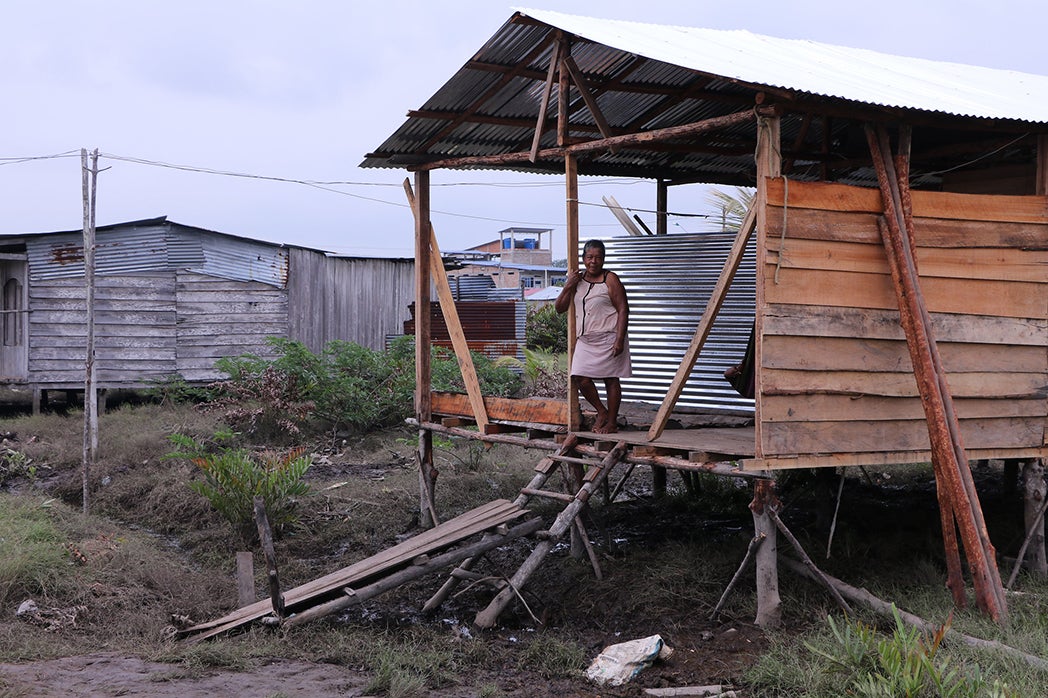 A woman in Tumaco, Colombia. Jairo Bedoya - World Bank
A woman in Tumaco, Colombia. Jairo Bedoya - World Bank
These challenges require complex, long-term solutions, and they understandably test the patience of the population. People’s demands cannot wait when it comes to getting medical treatment for a serious illness, having better access to their workplace through an efficient public transportation system or receiving support in cases of domestic violence.
Problems like these cannot wait for the long term. That is why Latin Americans are demanding solutions and demanding them now.
In a recent article, I discussed the challenges facing the region and some possible responses. We are all familiar with these challenges: Latin America needs to accelerate its pace of economic growth, reduce inequality and improve governance . It’s no coincidence that Latin America has been the slowest-growing region in the past 10 years and has the highest levels of inequality.
Nevertheless, these macroeconomic recommendations, although necessary to establish policy guidelines, will require patience until results become visible. In other words, there will be clear discrepancies between what people demand and what can be offered. And this may become the breeding ground for renewed collective unrest. Does this mean there is no alternative but to wait and hope? Not at all.
In this context, it is essential that macroeconomic interventions are accompanied by microeconomic ones. In other words, these would be initiatives that may not alter the enormous figures of national accounts, but can have a direct, positive impact on the quality of life of the population.
Obviously, these types of projects should be tailored to the situation of each country and the specific problem that needs to be addressed.
For example, in Argentina, where the economic crisis has contributed to raising in 2.4 million the number of people falling below the poverty line, the World Bank is working with the government to mitigate the impact of the crisis through the Universal Child Allowance Program, commonly known as the AUH.
The AUH complements the income of families with children when the household income is below the minimum wage. Although the program cannot permanently resolve the poverty problem, it can reduce the impact of the economic situation on a disadvantaged group.
Or let’s consider Colombia, where the World Bank is working with authorities to improve the quality of the healthcare system. One component of this project seeks to increase the early detection of breast cancer from 56 percent to 69 percent. Clearly, the country cannot wait to resolve its macroeconomic issues before stepping up its fight against cancer.
The World Bank is also working with Colombia to make healthcare systems more inclusive and ensuring that the country’s 32 departments allow the foreign population to have social security coverage. This is especially critical in Colombia, where there are 1.63
million Venezuelan migrants. The program will not resolve all of Colombia’s health issues, nor those of immigrants, but we believe it will significantly improve public healthcare services.
Finally, in Mexico we are supporting the government to expand access to financial services in rural areas, where it is estimated that just 10 percent of the population has access to credit. This limits the possibilities for enterprising individuals to invest and generate wealth, and for families to get loans in the event of an emergency. In this case, our goal is to facilitate access to credit for 315,000 people. Like in the previous examples, while this intervention will not definitively resolve the country’s financial service deficiencies, it can help improve the situation of many people.
These are just three of the World Bank’s 213 operations to complement macroeconomic interventions in the region. They are undoubtedly partial responses to the region’s problems, yet they are of crucial importance given the daily pain and suffering, especially of the most vulnerable. Additionally, they show that there is a way to begin to address the population’s most urgent demands.
More blogs about this serie:
* Can the Latin American unrest be turned into a development opportunity?


Join the Conversation